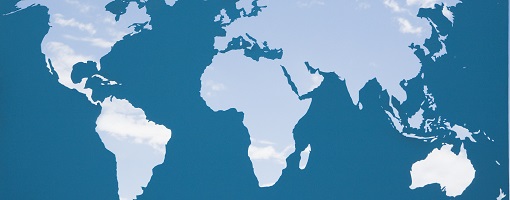The government has announced plans to extend tariff cuts to hundreds of products exported from developing countries.
The Department for International Trade explained that a wide variety of products that aren’t widely produced in the UK, including clothing and food, will benefit from lower or zero tariffs.
The move builds on the thousands of products that developing countries are able to export to the UK duty-free and means that 99 per cent of goods imported from Africa under the scheme will enter the UK duty free, said the department.
The government says that post-Brexit powers have allowed it to launch one of the world’s “most generous” trading schemes and go beyond the EU’s Generalised Scheme of Preferences (GSP).
The GSP removes import duties from products coming into the EU market from what the European Commission describes as “vulnerable developing countries”.
The trade department claims that the scheme will mean British companies could benefit from £750 million per year of reduced import costs, which it said would lead to more choice and lower costs for UK consumers to help with the rising cost of living.
“As an independent trading nation, we are taking back control of our trade policy and making decisions that back UK businesses, help with the cost of living, and support the economies of developing countries around the world,” said secretary of state for international trade, Anne-Marie Trevelyan. “UK businesses can look forward to less red-tape and lower costs, incentivising firms to import goods from developing countries.”
The Developing Countries Trading Scheme (DCTS) will cover 65 countries across Africa, Asia, Oceania, and the Americas.
The new scheme will remove some seasonal tariffs, meaning more options for British supermarkets and shops all year round, said the government.
For example, it explained, cucumbers - which can’t be grown in the UK in the winter - will now be tariff-free during this period for the majority of countries in the scheme.
The DCTS also designed to simplify complex trade guidelines like ‘rules of origin’, which dictate what proportion of a product must be made in its country of origin.
Latest News
-
Asos launches four-tier loyalty programme for UK customers following successful trial
-
Mango launches genAI fashion assistant
-
BestBuy ‘appoints new chief digital and tech officer’
-
Pandora rolls out new ERP system to support digital transformation
-
New Look implements AI-powered customer data cloud
-
Sports Emotion rolls out AI-driven merchandising platform
Supermicro and NVIDIA’s AI Solution for Retailers
To find out more: click here
Poundland significantly reduces antisocial behaviour, aggression and shoplifting with Motorola Solutions VT100 body cameras
Retail should not be a high-risk occupation. As a company, we are focused on listening to our colleagues and customers to help them with the issues they are facing in-store and so far, the feedback on our body cameras has been excellent. They act as a great visual deterrent, help to de-escalate situations and overall, this project has significantly aided our goal to make the retail environment safer.
For further information on Motorola Solutions’ retail security products, including body cameras, click here.
For further information on Motorola Solutions’ retail security products, including body cameras, click here.
© 2024 Perspective Publishing Privacy & Cookies










Recent Stories